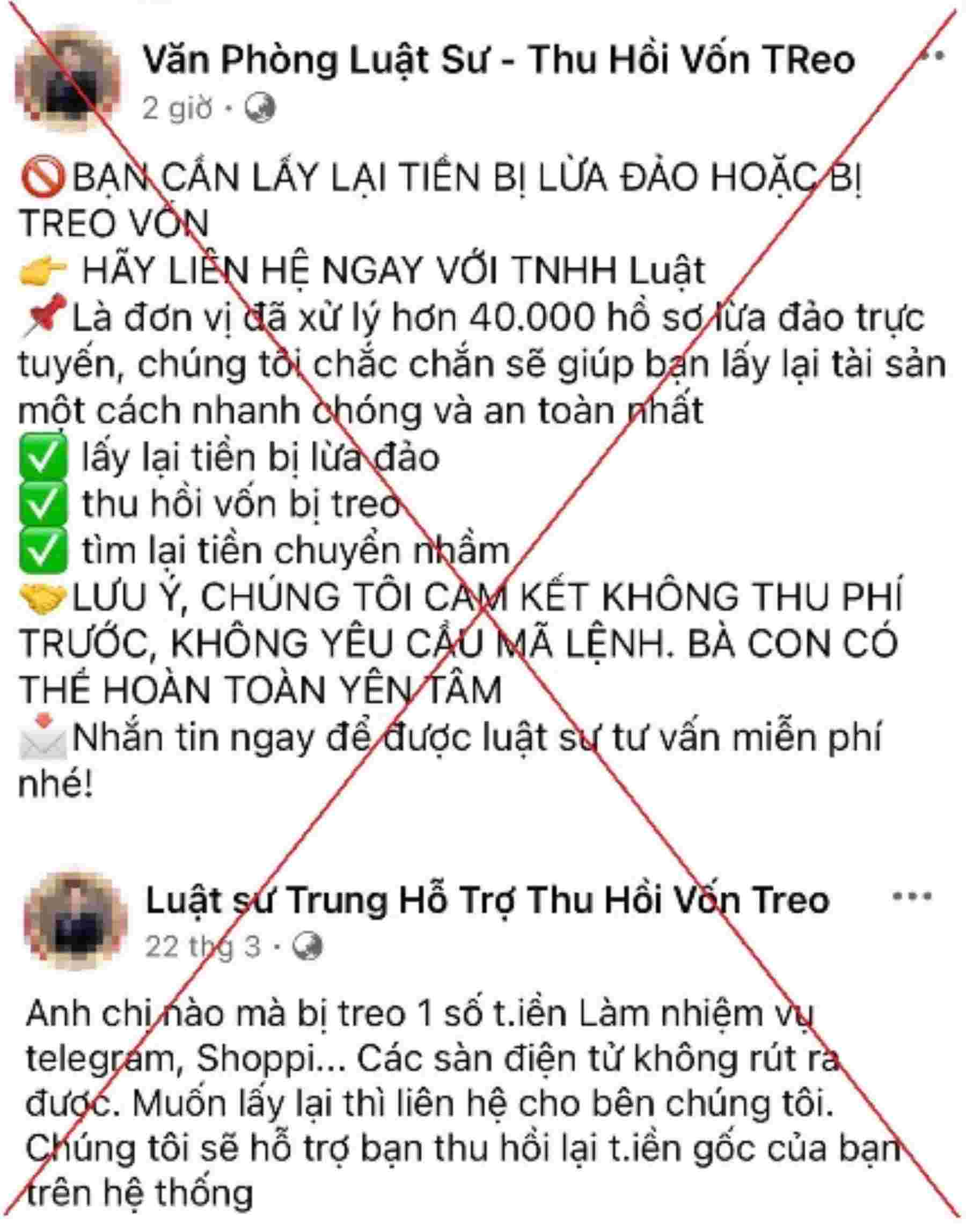Video of AI impersonating technology experts
After the shock of losing nearly 120 million VND to investing in a "super-profit" virtual currency project, Tran Minh Hao (character's name has been changed) fell into a state of panic. He almost did not dare to tell anyone, just quietly trying to get back the money he had lost. At that moment, a video appeared on Facebook of a lawyer with a bright face, speaking fluent Vietnamese, introducing a service to restore stolen virtual currency.
The person in the video also called his real name, showed off his license and introduced himself as a member of a prestigious law organization. His warm, natural voice made him believe that this was the Savior. He texted the link below the video. The other side responded almost immediately, using the voice in the video to call, a voice that seemed like an real person. "We have traced the wallet to receive his money. You only need to pay the recovery fee of 8% first, we will unlock the transaction within 3 hours" the voice on the other side affirmed. In a desperate mood, he transferred the money immediately.
Three hours passed, Mr. Hao waited for a long time without seeing anyone answer. The lawyer requested to pay an additional "security fee", this time 12 million VND. When Mr. Hao was suspicious and asked to call a video directly, the other person sent a short clip, the face, holding the lip directly, but looking closely, the words did not completely match the look. At this time, he realized that he had been scammed a second time. Feeling ashamed and angry, he went to the police station to report.
Calm down, he realized that he had fallen into a sophisticated scam matrix, cheating with virtual currency and then cheating with fake rescue services. And each trap was built with a face and a voice that he thought was real.
Mr. Hao's case is not the only one. Recently, Hanoi City Police issued a warning about the trick of impersonating lawyers to support the recovery of fraudulent money. The subjects impersonated lawyers to support the recovery, then pretended to connect with the cybersecurity side and notified the victims to pay fees to recover the fraud money.

It is almost impossible to get back money that has been scammed online
Talking to Lao Dong, Mr. Ngo Minh Hieu (Hieu PC) - cybersecurity expert, Director of the Anti-Fraud Project - said that the possibility of getting money back after being scammed online is zero.
"Receiving accounts are often fake accounts or bought back in the name of another person. The scammers also use fake identities. The website is scammed and built with big brand images, and collapsed after a few months to open a new page. Therefore, it is very difficult for victims to even recover their money," said Mr. Hieu.
According to Mr. Hieu, the second cheats like Mr. Hao's are often more sophisticated than the first cheat. The reason is that criminals no longer have to build trust from numbers. They just need to impersonate someone the victim wants to believe in. When hope is hurt, the scammer will target the weakest place.
He called this a " spiral of hope", the victim no longer regrets money, but regrets the opportunity to be saved. And it is this feeling that pushes them into the next traps. AI technology makes things even more dangerous. According to Mr. Hieu, with just a few seconds of voice or a few photos on social networks, criminals can create a "real-life" video, even impersonating the voice of relatives, lawyers, experts, and state officials. From the website, fanpage, license to certificate image, everything can be carefully edited in a few minutes.
In that context, the most important thing is not protection technology, but the alertness of the user himself. "There is no security software stronger than understanding" - Mr. Hieu emphasized.
Mr. Hieu recommends that people check their information on reputable platforms such as chongluadao.vn, or the pages of the Ministry of Public Security, the Ministry of Industry and Trade, the Ministry of Science and Technology... At the same time, activate two-layer authentication for all accounts, do not share OTP or personal information with anyone. "In a world where just one mistake can cause a few minutes of lost space to verify information, it is the most durable shield," he emphasized.











